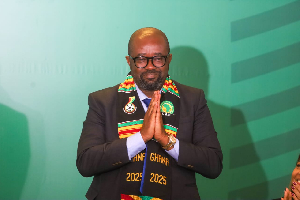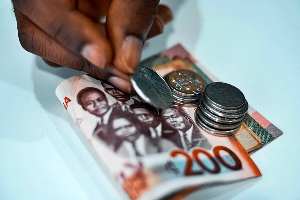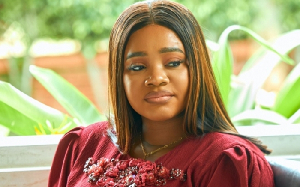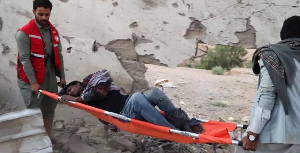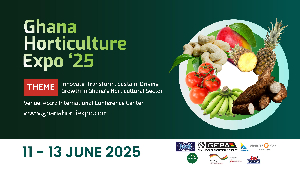From Benjamin Mensah, GNA Correspondent in Addis Ababa, Ethiopia
Addis Ababa (Ethiopia), Jan 26, GNA - The 18th African Union (AU) meeting in Addis Ababa, the Ethiopian capital, which officially opened last Monday, has assigned Ghana’s President John Evans Atta Mills major roles during the session of heads of State and Government.
Aside delivering the keynote address, which is on the theme: “Boosting Intra African Trade,” President Mills, who leaves Ghana for the meeting on Friday, would also be the Guest of Honour at the unveiling of the statue of Ghana’s first President Dr Kwame Nkrumah at the forecourt of the newly constructed AU building.
The conference centre project, fully-funded by the Chinese government and constructed by the China State Construction Engineering Corporation (CSCEC), within Sino-African relations, is China's largest-scale aid project for Africa in decades.
The building would be inaugurated next Saturday in the presence of all the Heads of State and Governments at the meeting.
The centre covers a construction area of some 50,000 square meters, and will house a 2,550-seat big conference hall, a 650-seat medium conference hall, five press conference rooms and two VIP rooms, among many other facilities.
According to Mr Koku Anyidoho, Director of Communications at the Office of the President, President Mills had invited Dr. Francis Nkrumah; and Madam Samia Nkrumah, Chairperson of the Convention People’s Party (CPP), who are both children of the first President to join in the unveiling of the statue in honour of their father.
Dr Nkrumah, who also played a leading role in the African liberation struggle, was a founding member of the Organisation of African Unity, now the AU, as well as the Pan Africanist Movement.
High on the agenda at the summit would be the voting to elect new leaders to the continental body.
While the AU typically promotes regional diversity in its leadership, some observers have opined that it would be better to favor countries that have best adhered to AU protocols.
The Heads of State and Government as usual at the first meeting in the year, would elect a new chairperson, likely to come from West Africa for a one-year term.
The new chair is usually selected on a rotating regional schedule, with leaders from North, South, East and West Africa getting a fair shot at the top seat.
Meanwhile, a tough diplomatic battle has taken shape at the Union ahead of the Presidential session to elect the Chairperson of the AU Commission.
The AU Commission Chairperson Dr Jean Ping, elected to the position on February 1, 2008 and seeking re-election, is facing South Africa’s Interior Minister, Nkosazana Dlamini-Zuma, who is vying on a platform of change to the continental body, which her country blames for failing to prevent conflicts.
Dr Ping’s supporters say their candidate is almost certain of an absolute majority when the elections come on 29 January, but Dlamini-Zuma’s backing from the Southern African bloc is not being ruled out.
South Africa has proposed to delay the elections of the Chairperson and the Deputy Chairperson during the AU’s ministerial meeting on 26 January, but a counter proposal to delay the election of eight other commissioners had also been tabled.
Ghana’s candidate for the post of Political Affairs Commissioner has been withdrawn in favour of Aisha Laraba Abudulai, Nigeria’s Ambassador to the Republic of Guinea.
General News of Friday, 27 January 2012
Source: GNA


